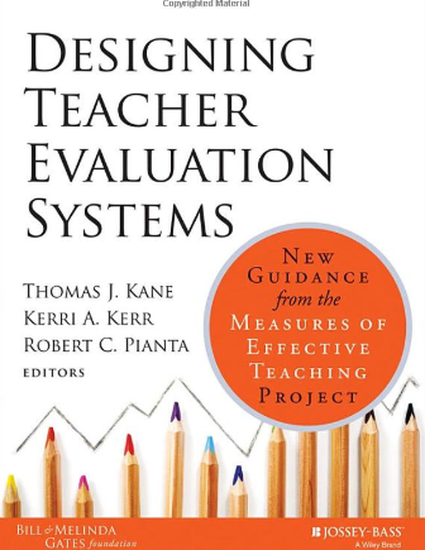
Contribution to Book
Scoring Design Decisions
Designing Teacher Evaluation Systems: New Guidance from the Measures of Effective Teaching Project
(2015)
Abstract
This chapter presents two studies that address scoring design decisions associated with observation length and observation instrument structure. MET project data were used in both studies. In Study 1, the amount of time that is necessary to observe and score classroom teaching practice is examined. The results indicate that a score based on the first thirty minutes of the lesson has a strong relationship with the full lesson score when using CLASS, FfT, MQI, PLATO, and QST instruments. In Study 2, differences in inter‐rater reliability when the observation instrument requires the observer to focus on a group of traits during a thirty‐minute observation, and when an observer scores all traits on the instrument, is examined. The chapter concludes by discussing how these results may be applied in practice. The studies were conducted to examine aspects of classroom observation that impact cognitive complexity, the scoring rubric, and time on task.
Keywords
- classroom observations,
- cognitive complexity,
- inter‐rater reliability,
- MET Scoring Design,
- observation length,
- scoring design,
- special studies,
- time on task
Disciplines
Publication Date
September 16, 2015
DOI
10.1002/9781119210856.ch13
Citation Information
Jilliam N. Joe, Catherine A. Mcclellan and Steven L. Holtzman. "Scoring Design Decisions" Designing Teacher Evaluation Systems: New Guidance from the Measures of Effective Teaching Project (2015) p. 415 - 443 Available at: http://works.bepress.com/catherine-mcclellan/3/
